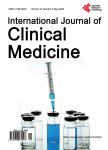The Ethics and the Meaning of Life among College Students
作者机构:School of HealthUniversity of MadeiraFunchalPortugal Visiting Researcher at UNIFOR by Capes/FuncapFortalezaBrazil Health Sciences CenterUniversity of FortalezaFortalezaBrazil Hospital of Dr.Nelio MendoncaMadeiraPortugal Abel Salazar Biomedical Sciences InstituteUniversity of PortoPortoPortugal 6School of Nursing of Sao Jose de ClunnyFunchalPortugal Nursing SciencesUniversity of PortoPortoPortugal
出 版 物:《International Journal of Clinical Medicine》 (临床医学国际期刊(英文))
年 卷 期:2018年第9卷第4期
页 面:221-233页
学科分类:1002[医学-临床医学] 100214[医学-肿瘤学] 10[医学]
主 题:Values Ethics Meaning of Life Young Adults College Students Questionnaire on Values (QSV)
摘 要:The concern of the ethics and the meaning of life in young adults became universal and are present in all contexts of human life. Such universality is due to the development of modern rationality, to establish a relationship between the intrinsic theoretical dimensions (scientific) and practical dimensions (ethical), originated that are present in the own array of knowledge. This descriptive cross-sectional study, aims to identify the values of the ethical dimension and meaning of life defended by the college students of the Universities of Madeira, Portugal and Fortaleza, Brazil. The sample consists of 605 University students (Madeira = 225 and Fortaleza = 380), with an average age of 21 years and a standard deviation of 2. We used the questionnaire on values (adapted from the European Values Survey). Most of the young people referred to have a religion (60% wood and 78.4% stronghold), being the most Catholic, however, present in your frequency disinterest and, yet, in Brazil there is a greater diversity of religions. Supporting the intervention of religious institutions in situations of everyday life is accepted mostly by Brazilians, with the exception of politics (35.5%). On the other hand, the university students of the University of Madeira understand that Religious Institutions should only give their opinion on racial discrimination (76.6%). Believe in God (90.8% and 55.1% Stronghold) and Soul (80.3% and 66.4% Stronghold) are beliefs more referred to by college students. These results are intended to contribute in the field of research on ethical values and meaning of life in young people. This study contributes to future comparative research among university students and to developing strategic programs in education and health, increasing the success and excellence in the formation of a full citizenship, preventing the fanaticisms and the social discrimination that today devastate the collective globally.



